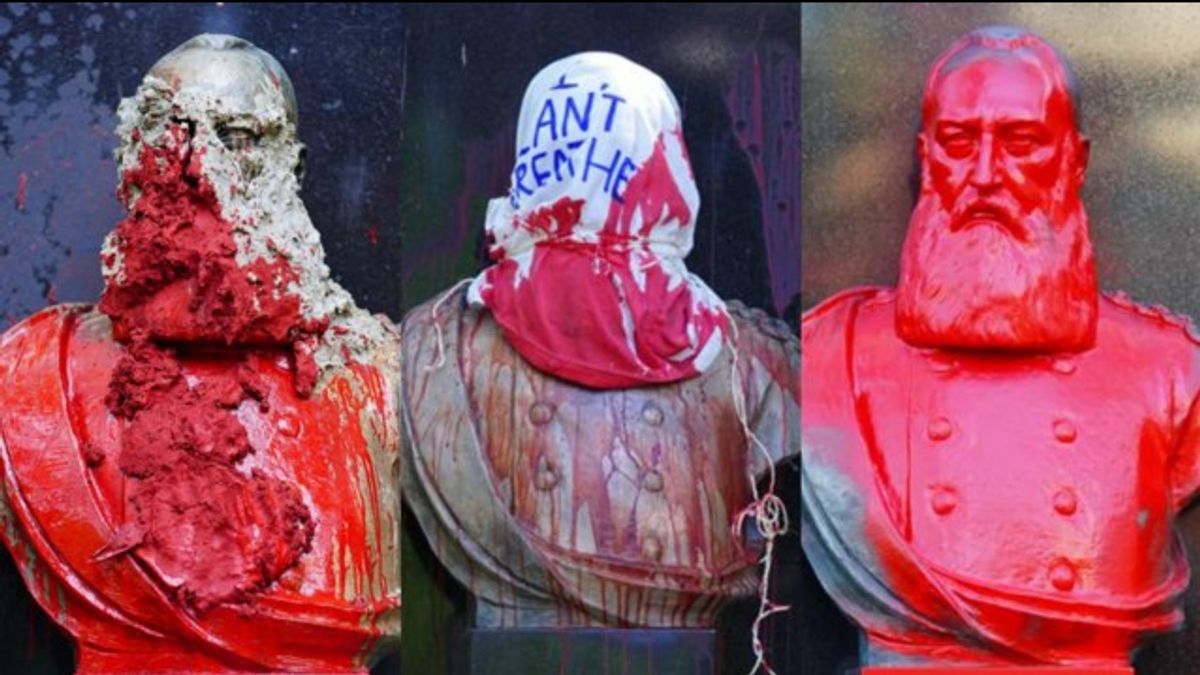JAKARTA - After a long debate, finally the statue of the former Belgian King Leopold II, who was the mastermind of the long occupation of the Democratic Republic of Congo, was revealed. The removal of the statue was carried out on Tuesday, June 30
According to the Associated Press, the City of Ghent authorities removed the statue just hours after the letter of apology from King Philippe was published. In the letter, Philippe apologized for the violence and humiliation when Belgium colonized Congo from 1865-1909.
Leopold II is often cited as the figure most responsible for the perpetuation of colonialism and slavery in Congo. At that time, Leopold II plundered all the wealth in Congo, as if it were his personal territory.
Leopold II also forced Congolese citizens to become slaves. He perpetuated forced labor and created regulations that wiped out half the Congolese population.
During the removal of the statue of Leopold II, local authorities held a short ceremony that was interspersed with prayer chanting. After that, the lowering of the statue was carried out, which was immediately greeted by applause from the local people.
It is planned that the statue will be moved to the museum warehouse in Ghent City pending further decisions from the city commission in charge. However, not a few also think that the removal of the statue is only a symbol that will not significantly solve the problem between Belgium and Congo.
#LeopoldII bust in #Gent removed to mark the 60th Independence Day of the Democratic Republic of Congo 🇨🇩. It's the 1st Belgian city to choose to do this in explicit solidarity with the Congolese community. Reporting for @euronews. #DRC #LeopoldMustFall #Ghent #BlackLivesMatter pic.twitter.com/Cs4EqEMRmB
- Jack Parrock (@jackeparrock) June 30, 2020
"Removing a statue does not erase history. It means extending and creating a new, questionable history," said Mathieu Charles, an activist with the Belgian Network for Blacks.
Belgium has long struggled to come to terms with its past sins. Not surprisingly, when the wave of the 'Black Lives Matter' (BLM) movement broke out because of George Floyd's death, the old wound opened up again.
Protesters in Belgium who initially voiced justice for Floyd, changed course by demanding that the statue of Leopold II be taken down. Before being taken down, the statue was damaged several times by protesters.
Then, yesterday, King Philippe apologized for the first time for these past sins. He sent a letter to Congolese President Felix Tshisekedi. In his letter, King Philippe expressed deep regret for the suffering and violence that resulted from colonialization.
Meanwhile, regional authorities also promised reforms of historical direction to better explain the true character of colonialism while the federal Parliament ruled that the commission will look at Belgium's colonial past.
The English, Chinese, Japanese, Arabic, and French versions are automatically generated by the AI. So there may still be inaccuracies in translating, please always see Indonesian as our main language. (system supported by DigitalSiber.id)












